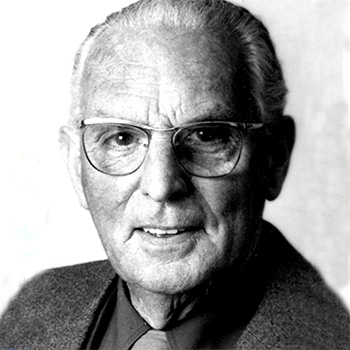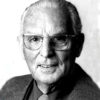Back to series


What Constitutes Christian Maturity?
Click here to open a Print - Friendly PDF
It will help to clear the ground if we consider first several factors that do not constitute Christian maturity. A study of the relevant Scripture verses will reveal these facts.
First, Christian maturity is not an aging process. Gray hairs and spiritual maturity are not necessarily wedded. Because we are aging, we should not conclude that of necessity we are progressing in maturity. Gray hairs can cover a person whose reactions to people and circumstances are anything but mature. It has been said that it is the intensity of years and not their extensity that is a true measure of maturity, for maturity is an attitude of life. It is our attitudes, not our arteries, that determine the quality of our life. Our age is beyond our control, but whatever our age, our attitudes can be changed by the power of grace and a holy purpose.
Spiritual growth is not measured by the calendar, and it can continue to the hour of death or translation if we are willing to comply with the laws governing growth.
Spiritual maturity is not instantaneous and final. If it were so, what would be the point of the exhortation in Hebrews 6:1, “Let us go on to maturity,” (or, catching the correct sense of the verb, “Let us continue progressing toward maturity”)? The whole tenor of Scripture is against the idea that one supreme act of decision permanently secures to us all the blessings of sanctification. No living thing comes to maturity instantaneously.
In the attainment of intellectual maturity, there is no alternative to the student painfully working through the pre-scribed courses. Nor is it any different in the spiritual life. Growth toward spiritual maturity will of necessity involve moral effort, discipline, renunciation, and perseverance in pursuit of the goal. There are no shortcuts.
Spiritual maturity is not automatic as a result of the mastery of scriptural teachings. Of course that is an essential element in attaining maturity, but of itself it cannot produce maturity. The accumulation of biblical information is of immense value, but it is only as the principles of Scripture are worked out in daily obedience that spiritual growth is advanced. Bible study can be largely an intellectual exercise that leaves the life unchanged.
 There is of necessity an intellectual component in this pursuit, but it is fruitful only if it results in increased likeness to Christ. Sincere moral effort in dependence on the Holy Spirit is involved.
There is of necessity an intellectual component in this pursuit, but it is fruitful only if it results in increased likeness to Christ. Sincere moral effort in dependence on the Holy Spirit is involved.
Spiritual maturity is not the mere possession of spiritual gifts. The maturing Christian will have those spiritual gifts with which the Holy Spirit has sovereignly endowed him or her (see 1 Cor. 12:11), but these of themselves are not the measure of spiritual maturity. The case of the Corinthian church bears this out. Paul affirmed of them, “You do not lack any spiritual gift” (1 Cor. 1:7). Yet a little later he goes on to say to them, “Brothers, I could not address you as spiritual, but as worldly—mere infants in Christ. I gave you milk, not solid food, for you were not yet ready for it. Indeed, you are still not ready. You are still worldly” (1 Cor. 3:1-3a).
These spiritual gifts are valuable, but only if they are exercised in love and only as they result in the unity and upbuilding of the church. The true index of Christian maturity is not the possession of gifts of the Spirit, but the production of the fruit of the Spirit (see Gal. 5:22- 23). It is sadly true that not all spiritually gifted believers act and react in a mature way.
The activity of the Holy Spirit in the believer bringing about progressive and manifest growth will always be the unimpeachable evidence that he is God’s child. It may be possible for the gifts of the Spirit to be imitated in the context of a local culture, but Godlike quality of moral life called “the fruit of the Spirit”—its Spirit-led direction, its victory over the flesh—is the only valid evidence that one is God’s child.
Spiritual maturity is not copying Christ. The Imitation of Christ by Thomas a Kempis does not advocate a selfgenerated copying of Christ. Spiritual maturity is rather what Paul said in 1 Corinthians 11:1, “Follow my example, as I follow the example of Christ.” No one can live by the Sermon on the Mount, for example, without first experiencing the new birth and living it out under the control of the Holy Spirit. The steps of the Master are too majestic for unaided or unregenerate people to follow.
What Christian Maturity Is
Before we can consider how to progress in spiritual maturity, we need to define several terms. The word frequently translated “perfect” in the King James Version of the Scripture is often and correctly rendered “mature” in more recent versions. Our English word “mature” is defined as “a state of full development.”
The Greek word Paul uses, teleios, has a special technical meaning. It signifies “an end, a goal, a limit,” and it combines dual ideas: first, the full development of one’s powers; and second, the attainment of some goal or standard—the realization of the proper end of one’s existence. So our word “mature” has come to mean complete or full grown, and implies ripeness in character and experience. It is used of the full development of adulthood as compared with the immaturity of childhood.
Philo divided his students into three categories: beginners, those who were making progress, and those who were beginning to attain maturity—classifications not unlike those of John who wrote to little children, young men, and fathers.
 The word “perfect” or “mature” can be used of our Lord in the absolute sense, for during His life on earth all His powers reached their full development. He completely fulfilled His Father’s will and attained the standard of perfection implied in His Father’s will. He also attained the goal for which He came to earth—to redeem a world of lost men and women.
The word “perfect” or “mature” can be used of our Lord in the absolute sense, for during His life on earth all His powers reached their full development. He completely fulfilled His Father’s will and attained the standard of perfection implied in His Father’s will. He also attained the goal for which He came to earth—to redeem a world of lost men and women.
When the word “mature” is used of us, however, it is not absolute but relative; it is like comparing a child What Constitutes Christian Maturity? with an adult. The word “perfect” in the Book of Hebrews does not hold out the promise of moral perfection on earth. If that were attainable, how could we “keep on progressing toward maturity”? It has been pointed out that perfection always has another summit, but as the poet Coleridge said, “beyond what is found in Christ, the human race has not and will not progress.”
To the Gnostics, “perfect” was a favorite and oftused word. They used it to describe one who was no longer a novice, but one who had matured, was fully initiated, and had mastered the secrets of their own mystery religion. But as Marvin Vincent says, in Christ every believer is teleios—fully initiated into the most profound mysteries of the Christian gospel. As Paul used the term, it meant “mature and complete in Christ.”
Viewed from another angle, spiritual maturity is simply Christlikeness. We are as mature as we are like Christ, and no more. He was the only fully mature man. His character was complete, well balanced, and perfectly integrated. All His qualities and capacities were perfectly attuned to the will of His Father, and this is the model, the standard God has set for us:
It was he who gave some to be apostles, some to be prophets, some to be evangelists, and some to be pastors and teachers, to prepare God’s people for works of service, so that the body of Christ may be built up, until we all reach unity in the faith and in the knowledge of the Son of God and become mature, attaining to the whole measure of the fullness of Christ.
Ephesians 4:11-13, italics mine
The supreme goal of the church is not evangelism, important and indispensable as that ministry is. The ultimate goal is stated by Paul when he wrote: “We proclaim him, teaching everyone with all wisdom, so that we may present everyone perfect [mature] in Christ” (Col. 1:28, italics mine). God’s purpose is to produce disciples who reflect the perfect humanity of His Son, people who are able to react to the exigencies and trials of life in an adult and not in a childish manner—meeting adult situations with adult reactions. In short, God’s purpose is to produce people who fulfill their humanity and become what God designed for them. The questions naturally arise: “Can Christians attain a perfect maturity in this life? What degree of maturity can one expect?”
In his commentary, William Hendriksen says, “A high degree of maturity can be attained in this life here and now, but full maturity cannot be realized this side of heaven. In heaven we will be perfectly sinless and obedient.”1
This statement is in keeping with the whole tenor of Scripture:
And we, who with unveiled faces all reflect the Lord’s glory, are being transformed into his likeness with ever increasing glory, which comes from the Lord, who is the Spirit.
2 Corinthians 3:18, italics mine
Grow in the grace and in knowledge of our Lord and Savior Jesus Christ.
2 Peter 3:18
Maturity is not an end we have achieved. We are to keep on growing and progressing. “None of us has yet attained perfection. So come and take your full share in our gatherings and in our discussions, which are aimed at helping us all towards maturity. Don’t stand aloof as though you know it all already.”2
The above extract from The Epistle of Barnabas gives an insight into the thinking of one of the early church fathers. Because maturity is related to an infinite God, our maturity will never be absolute but only relative. It is a goal unattainable in this life, but it can be a dynamic process involving constant progress.
For the Christian, spiritual maturity involves a final transformation into the likeness of Christ, and this will be consummated at His second advent.
Dear friends, now we are children of God, and what we will be has not yet been made known. But we know that when he appears, we shall be like him, for we shall see him as he is. Everyone who has this hope in him purifies himself, just as he is pure.
1 John 3:2–3
Taken from In Pursuit of Maturity by J. Oswald Sanders; Grand Rapids: Lamplighter Books (Zondervan Publishing House) © 1986, pp. 19-25. Reprinted by
permission.

J. Oswald Sanders
Author J. Oswald Sanders (1902 - 1992) attended the Bible Training Institute in Auckland and joined its staff in 1926. Sanders served as an instructor and administrator at the Bible College of New Zealand. He became general director of the China Inland Mission and led the reorganization of the CIM into the Overseas Missionary Fellowship. He was instrumental in beginning many new missions projects throughout East Asia. Upon his retirement Sanders wrote prolifically, with many of his over 40 books. One of Sander's most notable works was Heresies Ancient and Modern, later published as Cults and Isms (1962). COPYRIGHT: This publication is published by C.S. Lewis Institute; 8001 Braddock Road, Suite 301; Springfield, VA 22151. Portions of the publication may be reproduced for noncommercial, local church or ministry use without prior permission. Electronic copies of the PDF files may be duplicated and transmitted via e-mail for personal and church use. Articles may not be modified without prior written permission of the Institute. For questions, contact the Institute: 703.914.5602 or email us.
COPYRIGHT: This publication is published by C.S. Lewis Institute; 8001 Braddock Road, Suite 301; Springfield, VA 22151. Portions of the publication may be reproduced for noncommercial, local church or ministry use without prior permission. Electronic copies of the PDF files may be duplicated and transmitted via e-mail for personal and church use. Articles may not be modified without prior written permission of the Institute. For questions, contact the Institute: 703.914.5602 or email us.
-
Recent Podcasts
Ralph Waldo Emerson’s Philosophy and Influence
by David George Moore on July 26, 2024Ralph Waldo Emerson was a gifted nineteenth century...Read More
-
The Side B Stories – Nate Sala’s Story
by Jana Harmon, Nate Sala on July 19, 2024
-
Terrorism Through the Eyes of Faith
by Dennis Hollinger on July 12, 2024
-
Recent Publications
Hasn’t Science Proven That Belief in God Is an Outdated Superstition?
by Sharon Dirckx on July 1, 2024Many assume that scientific practice and belief in...Read More
-
Has the Bible Been Corrupted as Some Muslims Claim?
by Andy Bannister on June 1, 2024
-
Seeing Jesus Through the Eyes of Women
by Rebecca McLaughlin on May 15, 2024
0
All Booked
0.00
All Booked
0.00
All Booked
22194
C.S. Lewis’s The Abolition of Man Live Online Small Group 8:00 PM ET
https://www.cslewisinstitute.org/?event=c-s-lewiss-the-abolition-of-man-study-course&event_date=2024-10-02®=1
https://www.paypal.com/cgi-bin/webscr
2024-10-02

Next coming event
Days
Hours
Minutes
Seconds
C.S. Lewis’s The Abolition of Man Live Online Small Group 8:00 PM ET
On October 2, 2024 at 8:00 pmSpeakers

J. Oswald Sanders
Author
Team Members






